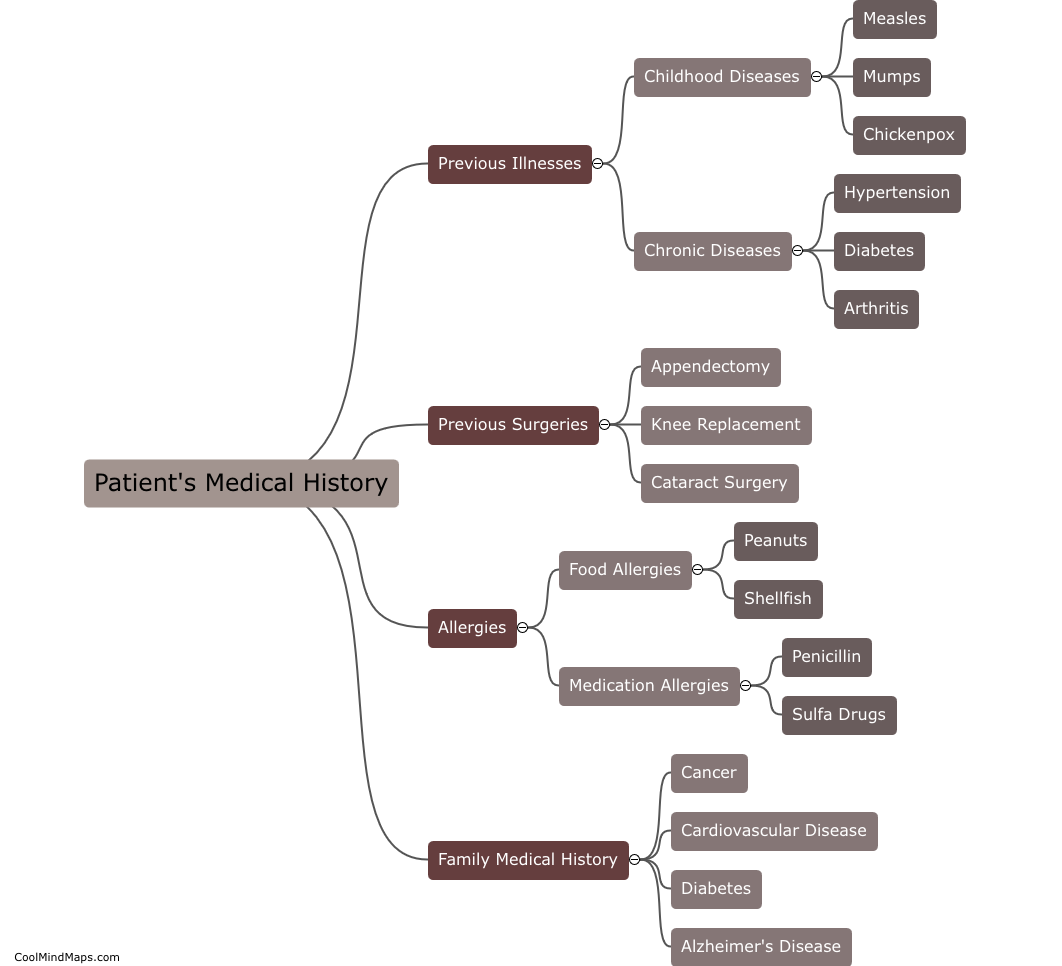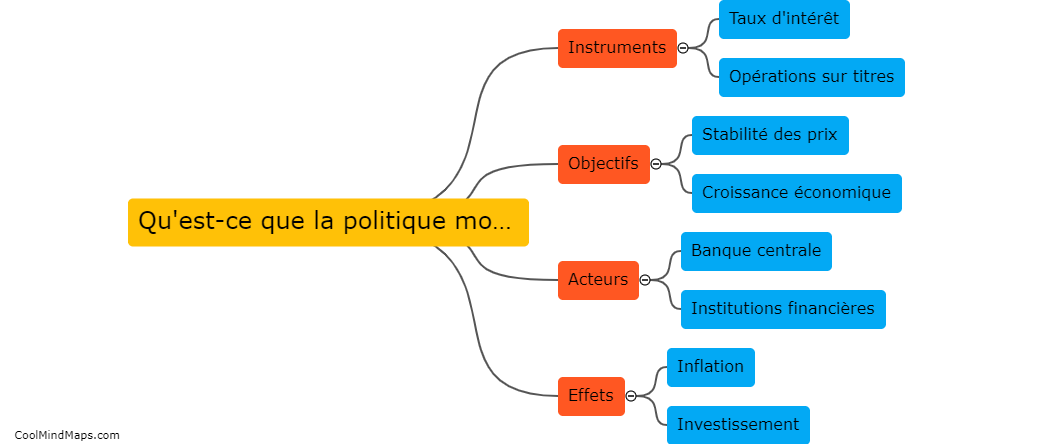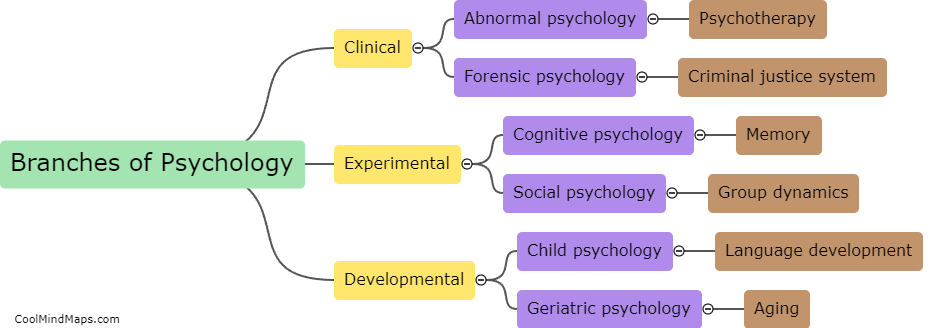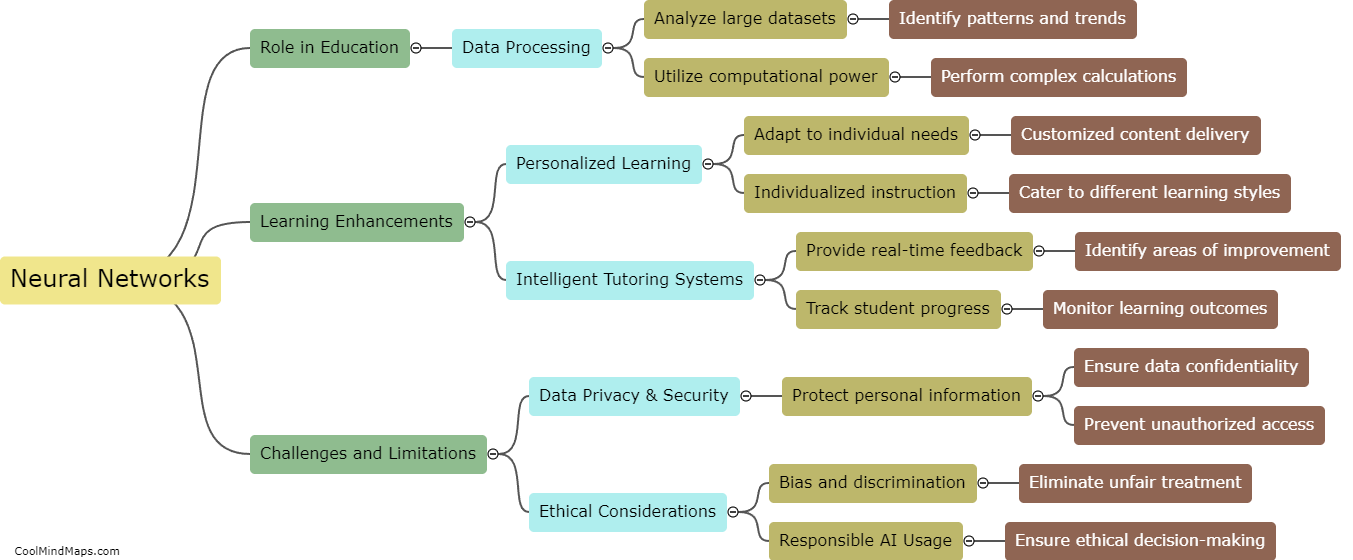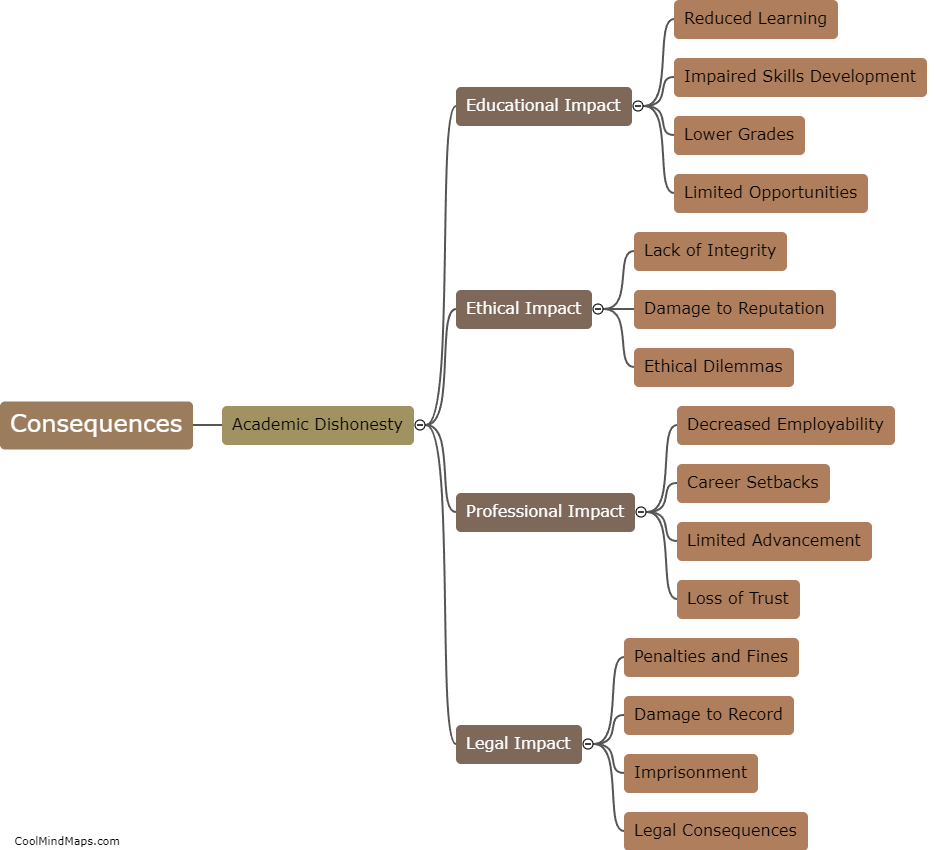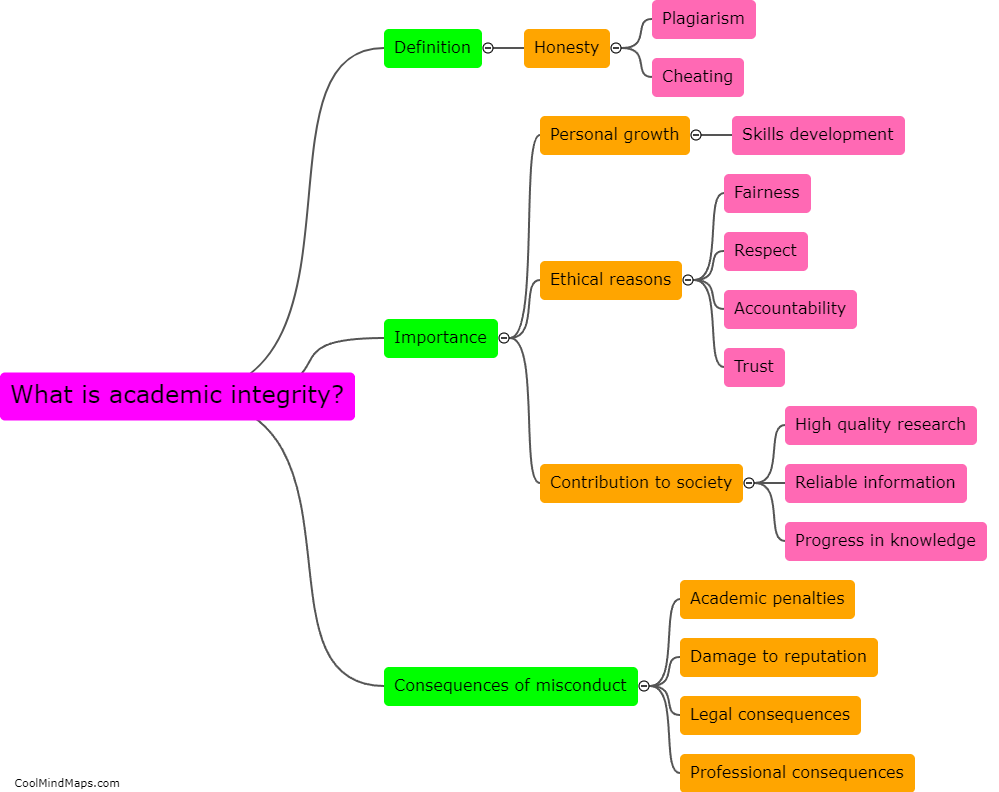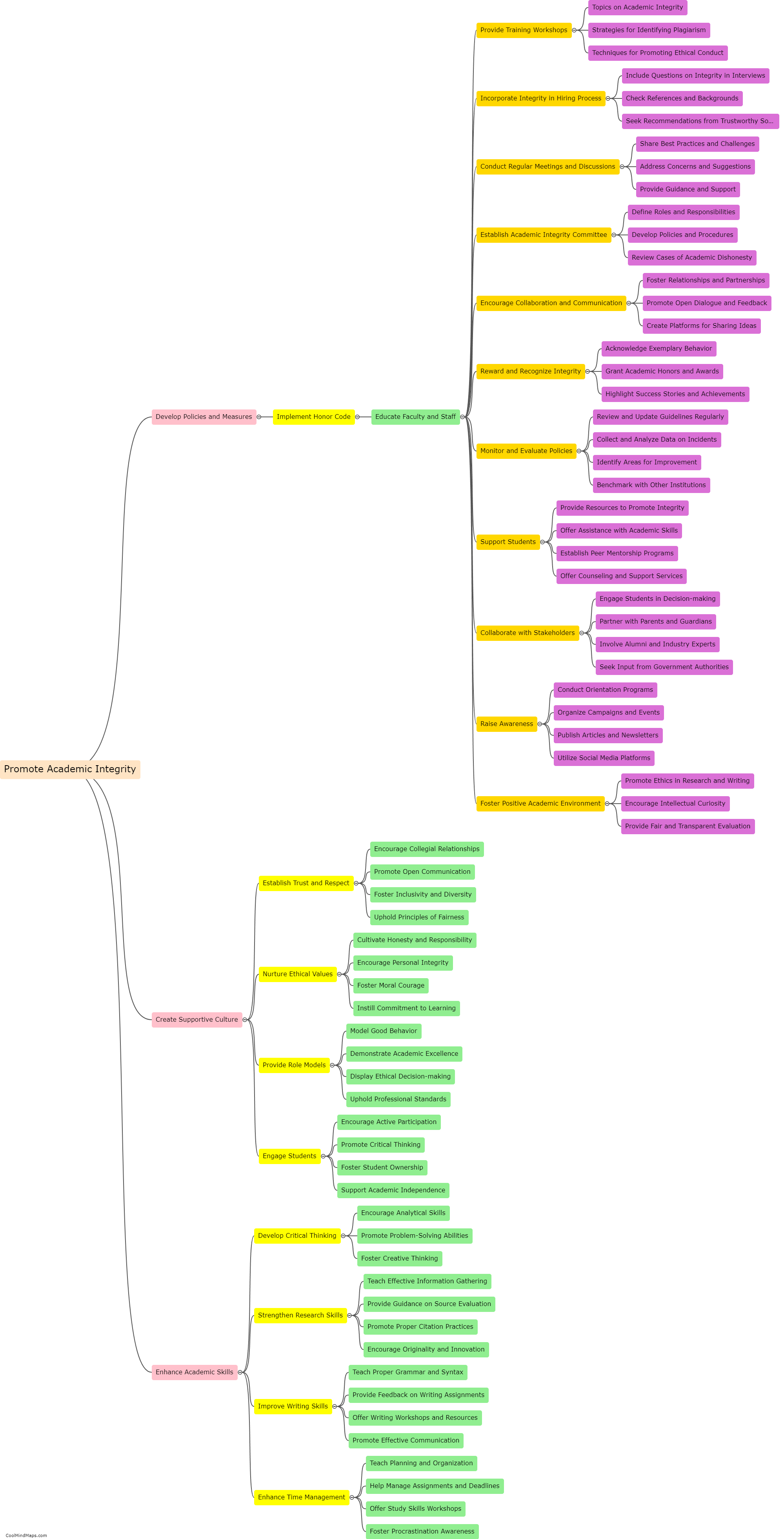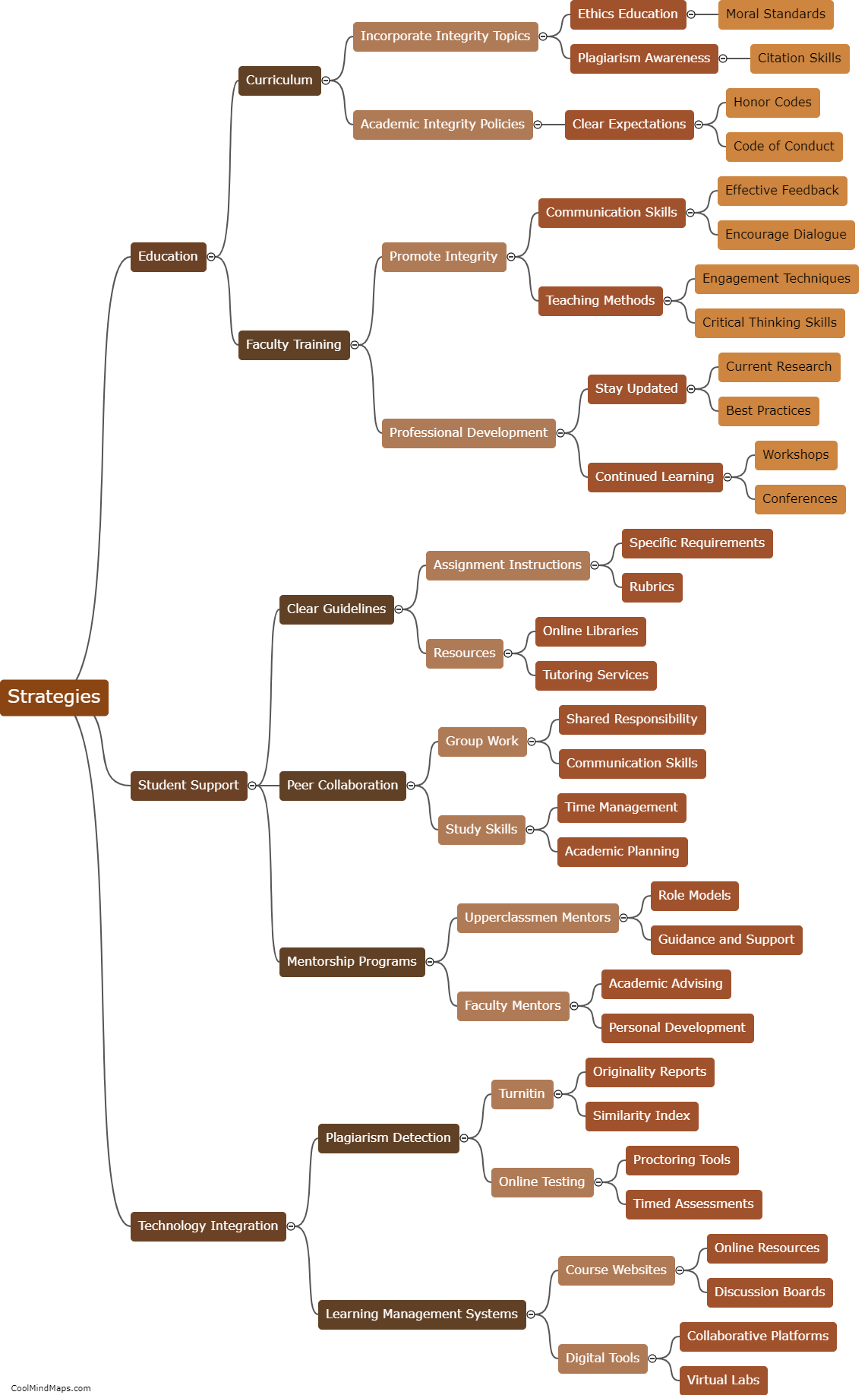What is academic dishonesty?
Academic dishonesty refers to any act of dishonesty, fraud, or deception in an educational setting. It involves various unethical behaviors such as cheating, plagiarism, fabrication, and collusion. Cheating refers to the act of using unauthorized resources, communication devices, or getting assistance from others during exams, assignments, or tests. Plagiarism is the act of presenting someone else's work or ideas as one's own without giving proper credit. Fabrication involves making up or falsifying data, sources, or information. Collusion occurs when students collaborate or share their work, even if it is against the rules or without permission. Academic dishonesty is considered a serious offense as it undermines the integrity of the educational system and hinders true learning and personal development. Institutions often have strict policies and consequences in place to deter and punish those engaged in such dishonest practices.
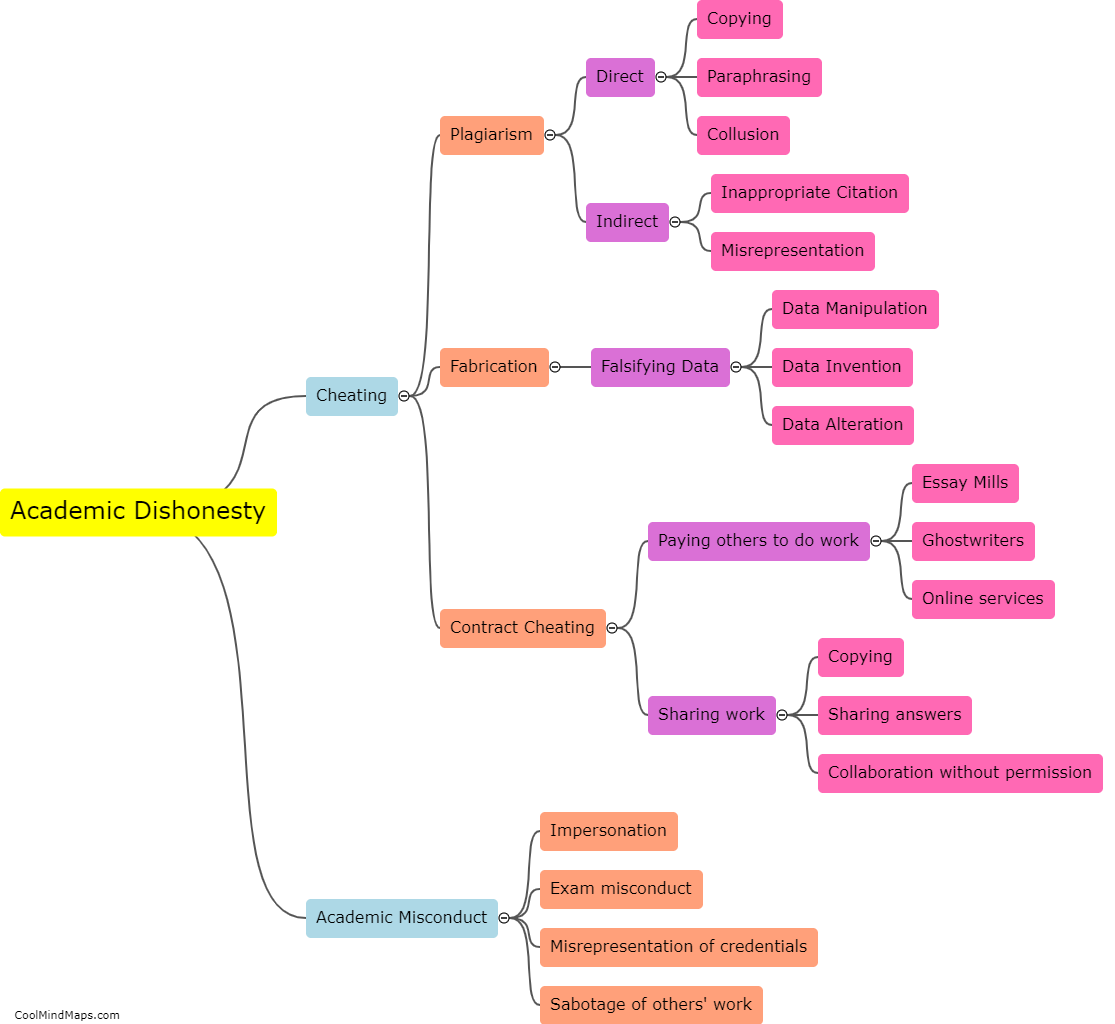
This mind map was published on 26 October 2023 and has been viewed 89 times.

